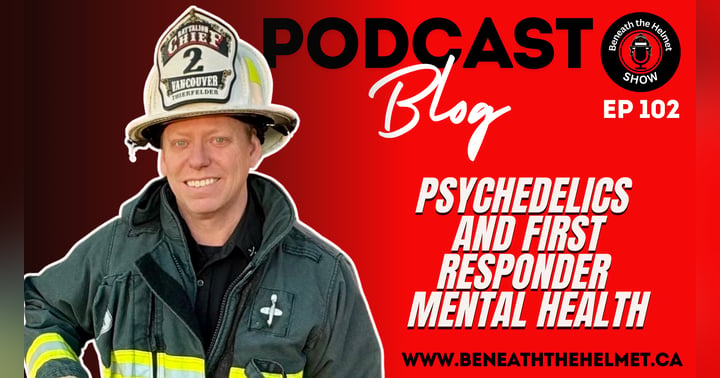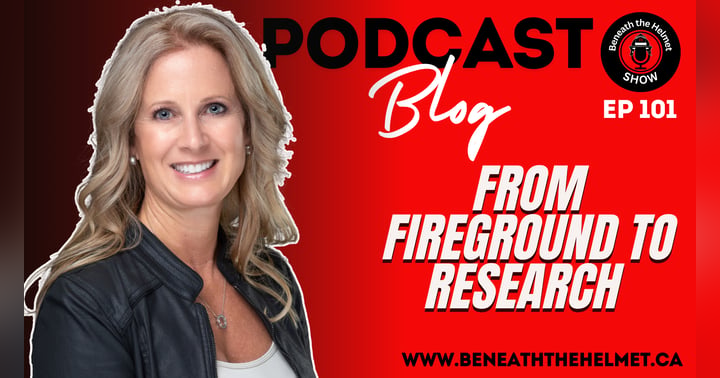Resilient First Responders: Dr. Stephanie Conn on Peer Support and Mental Health

First responders live in a world of constant pressure, unpredictable trauma, and relentless responsibility. In this episode of Beneath the Helmet, retired Fire Chief and coach Arjuna George sits down with Dr. Stephanie Conn, a licensed psychologist, former police officer, and author of Increasing Resilience in Police and Emergency Personnel. The conversation explores the pivotal role of peer support, the science of hope, and the practices that enable firefighters, police officers, and emergency personnel to remain resilient, both on and off the job.
A Journey from Dispatch to Doctor
Stephanie’s story is compelling because she has lived every layer of the first responder experience. From her early days as a dispatcher and officer in Fort Worth, Texas, to her work as a licensed psychologist, she has seen firsthand the toll of trauma and the cost of staying silent. She shared:
“I can understand, I go with their concern about self-reflection or tackling their demons… but at what cost?”
Her insider knowledge allows her to connect with first responders on a level few clinicians can, offering both clinical expertise and hard-won empathy.
Arjuna’s Top 5 Nuggets from the Episode
1. Peer Support as a Lifeline
Stephanie emphasized that not everyone will seek out a mental health professional, but almost everyone will talk to a trusted peer. A strong peer support team can be the difference between silent suffering and early intervention. Leadership needs support too – Chiefs and administrators often have no peer group, yet face immense stress.
2. Hope as a Biological Force
Hope isn’t just an emotion; it’s a neurochemical process. Stephanie explained that hope activates endorphins and creates a biological pathway for healing. Hope is medicine – Even a small spark of hope activates the body’s natural healing systems.
3. Identity Beyond the Uniform
Many first responders lose themselves in the job. Stephanie shared stories of officers and firefighters who faced deep regret late in life because they had neglected their families, hobbies, and personal passions.
4. Building Sustainable Peer Support Programs
From careful onboarding to regular training and offboarding, Stephanie emphasized that peer support teams require more than enthusiasm; they need structure, standards, and ongoing development to prevent burnout and avoid legal pitfalls. Peer support saves lives – Strong peer teams reach those who may never call a therapist.
5. TRE and the Power of the Body
As a certified provider of TRE (Tension and Trauma Release Exercises), Stephanie explained how tremoring can release stored stress and reconnect first responders with their bodies, improving resilience and nervous system regulation. The Body Keeps the Score – Somatic practices like TRE are essential for long-term resilience.
First responders are often the last to ask for help and the first to absorb the weight of human tragedy. Stephanie’s message is clear: resilience is not luck, it’s a practice. Whether through peer support, hopeful conversations, or body-based techniques like TRE, the tools for healing are available and urgently needed.
If you’re a first responder, a leader in public safety, or someone who loves a first responder, this episode is a must-listen. Share this blog with your peers, subscribe to Beneath the Helmet on YouTube or your favourite podcast platform, and help spread the message of hope and resilience. Together, we can build a culture that protects the protectors.
Arjuna George - Founder and Host of Beneath the Helmet Show












